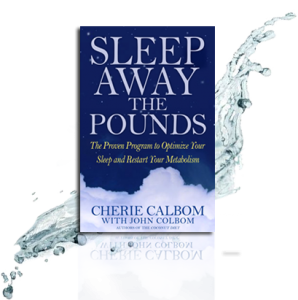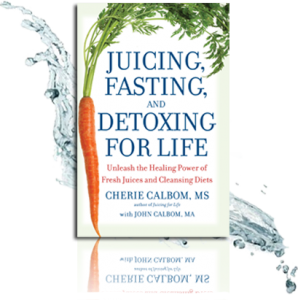 Why aren’t people sleeping?
Why aren’t people sleeping?
Is there is a correlation between the 65% of Americans that are overweight and the 63%, that according to the National Sleep Foundation in Washington, D.C., say they do not get the recommended 8 hours of sleep per night? A growing number of sleep researchers assert that there is.
In our frenzy to experience it all, get it all done, manage our universe, and not let a moment escape us, we’re missing out on one of life’s most important necessities—a good night’s sleep. People are the only animals to voluntarily ignore their sleep needs.
Since the mid-1960s, the rate of obesity in the United States has nearly tripled to one in three adults. Over the same period, the U.S. population has deducted, on average, more than an hour from their nightly slumber and about two hours since 1910, when the average person slept 9 hours a night. According to the National Sleep Foundation, people in the United States sleep an average of 6.9 hours on weeknights, (that’s about 2 hours less than they did a century ago), and 7.5 hours on weekends. A whopping one-third of our population sleeps 6.5 or fewer hours nightly—far less than the 8 hours that many sleep-specialists recommend.
Take the “How Balanced Are You?” and “Are Your Sleep Patterns Healthy?” Quizzes to the right.
So what’s keeping us awake?
The research that went into Sleep Away the Pounds!
Sleep deprivation has been hypothesized to contribute to obesity by decreasing leptin, increasing ghrelin, and compromising insulin sensitivity. Read about it. Obstructive sleep apnoea (OSA) occurs frequently in obese patients and may be reversible with weight loss.Obstructive sleep apnoea and obesity are both independent risk factors for hypertension and increased sympathetic activity. Read about it. Physiologic studies suggest that sleep restriction has metabolic effects that predispose to weight gain.
 The authors investigated the association between self-reported usual sleep duration and subsequent weight gain in the Nurses’ Health Study. The 68,183 women who reported habitual sleep duration in 1986 were followed for 16 years. Read about it. If you manage to get a good night’s sleep on a regular basis your chances of staying slim or becoming slimmer are significantly higher, say researchers from Care Western University, Ohio, USA, after monitoring nearly 70,000 women for over a decade and-a-half. Read about it.
The authors investigated the association between self-reported usual sleep duration and subsequent weight gain in the Nurses’ Health Study. The 68,183 women who reported habitual sleep duration in 1986 were followed for 16 years. Read about it. If you manage to get a good night’s sleep on a regular basis your chances of staying slim or becoming slimmer are significantly higher, say researchers from Care Western University, Ohio, USA, after monitoring nearly 70,000 women for over a decade and-a-half. Read about it.
A link between sleep deprivation and obesity?
Click to read about it...
Overweight and Obese Patients in a Primary Care
Population Report Less Sleep Than Patients With a Normal Body Mass Index
Robert D. Vorona, MD; Maria P. Winn, MSN, FNP; Teresa W. Babineau, MD; Benjamin P. Eng, MD; Howard R. Feldman, MD; J. Catesby Ware, PhD
Arch Intern Med. 2005;165:25-30.
Insufficient sleep and obesity are common in the United States. Restricted sleep causes important neurocognitive changes, including excessive daytime sleepiness and altered mood. This may result in work-related injuries and automotive crashes. Evidence links sleep loss to hormonal changes that could result in obesity. This article examines the association between restricted sleep and obesity in a heterogeneous adult primary care population. Read about it.
The Impact of Sleep Deprivation on Hormones and Metabolism
Click to read about it...
The regulation of leptin, a hormone released by the fat cells that signals satiety to the brain and thus suppresses appetite, is markedly dependent on sleep duration. Read about it.
Impact of Sleep Loss on the Family and Children
Click to read about it...
Nutritionist Cherie Calbom, MS and psychotherapist John Calbom, MA show how lack of sleep affects the efficient use of calories in their latest book Sleep Away the Pounds (Warner Wellness). When you don’t get the hours of sleep your body needs, the hormone ghrelin increases, and studies show it causes you to want to eat more food, especially high-carb foods. In addition, the hormone leptin that controls the appetite goes down. This can cause intense hunger sensations. One study found that participants with the biggest fluctuation of hormones craved the most fattening foods such as ice cream, cakes, candy, and salty snacks like potato chips. Many people have thought it was just a lack of willpower when they couldn’t conquer cravings or binge eating; now we know, that for many people, it’s hormonal imbalances.
A whopping one-third of our population sleeps 6.5 or fewer hours nightly—far less than the 8 hours that many sleep-specialists recommend for adults. One physician says the number of overtired patients he sees has soared in the last 25 years since he has been in practice because families are trying “to squeeze 28 hours of living into 24.”
One student said that she discovered she was sleeping a few hours less than the 11 hours recommended for a 13-year-old. Her sleep journal showed that she played with her cats, getting hyped up before bed, or watched television and was unable to turn it off. She has since started reading or doing other relaxing activities to help her slow down before bedtime.
In our frenzy to experience it all and get it all done, many families are missing out on one of life’s most important necessities—a good night’s sleep, says Cherie Calbom. “We’re shifting to a 24-hour-a-day, seven-day-a-week society, and as a result we’re increasingly not sleeping like we used to,” says one professor at the University of British Columbia. We’re really only now starting to understand how that is affecting our weight and our health, and it appears to be significant.
Insomnia Diagnostics
The Amino Acid Program for Insomnia
Do you suffer with any of the following? Click to read more...
- Alzheimer’s Disease
- Anxiety and Panic Attacks
- ADD/ADHD
- Cravings
- Depression
- Epilepsy and Seizures
- Insomnia and Jet Lag
- Migraine Stress
The Amino Acid Program could help. Neurotransmitter testing is the best way to quantify depletion in brain chemicals. Testing can be completed whether you are taking medications or not. For more information regarding how to get tested, please go to www.neurogistics.com and use my practitioner code SLEEP.
For more information call 425.261.8821.
Cherie’s Sleep Well Recipes
Cherie’s Sleep Tips for Your Best Sleep


 Drink a veggie juice that’s high in calcium-rich veggies such as kale, collards, turnip greens, parsley, watercress, sunflower sprouts, beet greens, or broccoli.
Drink a veggie juice that’s high in calcium-rich veggies such as kale, collards, turnip greens, parsley, watercress, sunflower sprouts, beet greens, or broccoli.

 Drink a veggie drink rich in magnesium before bed; choose beet greens, chard, collard greens, or parsley.
Drink a veggie drink rich in magnesium before bed; choose beet greens, chard, collard greens, or parsley.


 You may have imbalanced brain neurotransmitters. If your excitatory neurotransmitters are too high, your mind can take off at night and chatter away, keeping you awake. See the Amino Acid Program
You may have imbalanced brain neurotransmitters. If your excitatory neurotransmitters are too high, your mind can take off at night and chatter away, keeping you awake. See the Amino Acid Program

 5 medium carrots, scrubbed well,green tops removed, ends trimmed
5 medium carrots, scrubbed well,green tops removed, ends trimmed








